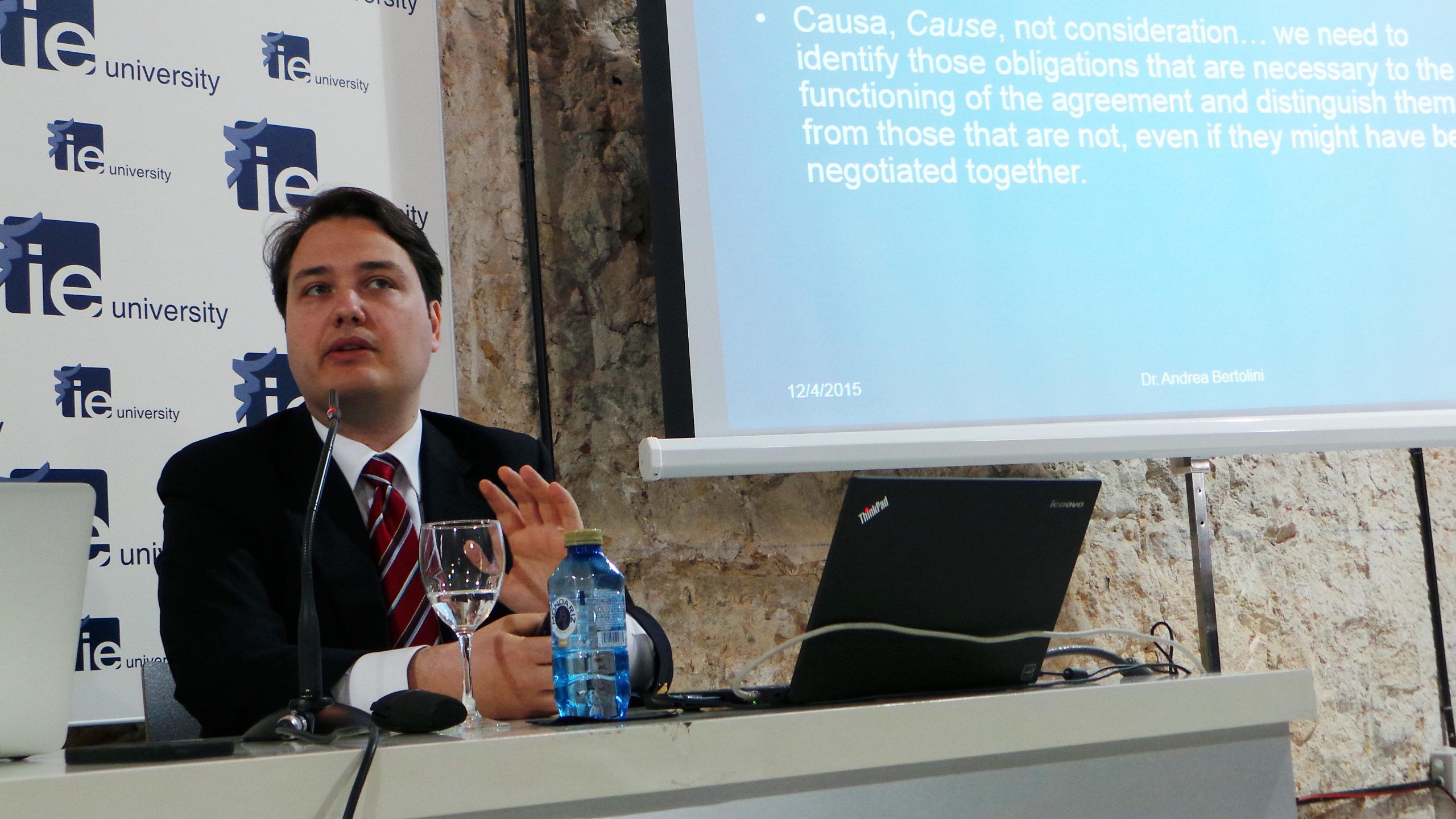Robolaw: Legal Aspects of Robotics and “Human Enhancement”
On 14 April 2015, Marco de Benito welcomed Andrea Bertolini, from the Scuola Superiore St. Anna in Pisa, and Christoph Bezemek, then at the Vienna University of Economics and Business, to discuss the legal and ethical aspects of robotics and the so-called “human enhancement”.
The two distinguished scholars presented the issue of human enhancement through the use of robotic technologies, and how it can be framed within European law and principles in order to identify legal solutions to the many questions that it poses.
Indeed, today technological advancement allows so profound and radical interventions onto the human body, so capable of pushing existing capabilities beyond limits up to today deemed unconceivable, as to question the very notion of human being.
Faced with that reality, a thoughtful jurist will consider whether the principles of self-determination, equality and human dignity provide sufficient criteria in order to determine what kind of behaviour, choice, and intervention should be allowed.
Such a jurist will aim at identifying boundaries between practices that are desirable and ought to be permitted — e.g., recovering a lost function for a person with disabilities — and practices that instead appear problematic — e.g., replacing an otherwise perfectly functional limb with a more performing artificial one.
You can watch the whole video, conveniently divided in different sections with a table of contents to get to them directly, here.
IE has continued doing research on this topic under the LEGROB Module. LEGROB (Jean Monnet Module Liability of Robots: A European Vision for a New Legal Regime) is devoted to teaching, researching and debating on how the EU is going to take action on the regulation of the liability of robots, if it does not want to live by standards set by others such as the US and China, its forefront competitors in Artificial Intelligence. LEGROB was granted to IE under the direction of Francisco de Elizalde in 2018.


